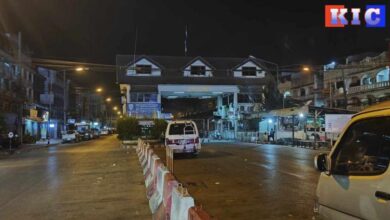Leading NGO warns Burma’s peace process still fragile, despite signs of change

Positive political changes in Burma – including the release of 1,500 political prisoners – have unfolded rapidly since a flawed election saw ex-general Thein Sein come into power in 2011. But reform is “still at a tentative and early stage” according to a leading NGO of activist scholars, the Transnational Institute (TNI).
The entry of the NLD into parliament, the spread of ethnic ceasefires and growing engagement from the West, have encouraged hopes for progressive change in Burma.
But TNI has pointed to Burma’s political history and stressed caution; under the Thein Sein government, “Burma has entered its fourth era of political transition since independence from the British in 1948,” and that periods of state transition in the past (1948, 1966, 1982), failed to lead to lasting democratic reforms.
In July, TNI hosted a two-day conference, involving a diversity of ethnic groups from different areas of Burma, with the theme ‘prospects for ethnic peace and political participation.’
Those taking part in the two-day conference included 30 representatives from civil society, parliament, and armed opposition groups.
The conference also highlighted ongoing concerns amongst Burma’s major ethnic groups about being marginalized in the country’s peace process. Conflict has also continued in Burma’s ethnic borderlands.
The TNI statement notes that the country’s ethnic groups still distrust Burma’s military, which dominates the country’s political system.
“Military offensives, notably in Kachin and Shan States, as well as sectarian violence in Rakhine State, have caused many citizens to question the likely shape of a future Burma.”
“Daily life is little changed in many of the ethnic states.” The TNI added, “with Burma Army domination continuing and ethnic parties struggling to make much impact.”
Of particular concern is the Burma Army offensives begun under President’s U Thein Sein government against the Kachin Independence Organisation (KIO) and the Shan State Army-North (SSAN), both of which had ceasefire agreements with Burma’s government under Burma’s previous leader, General Than Shwe.
It has been estimated that the Kachin and Shan State wars have led to at least 60,000 internally displaced civilians and several international humanitarian organisations have accused the Burma Army of committing human rights abuses in the conflicts.
Burma’s new government also faces a massive challenge in developing a functioning and less corrupt bureaucracy.
“For the moment, there is no real cohesion… at the state and regional levels.” In Burma’s lawless ethnic borderlands “military commanders still appear to exert the greatest authority.”
Of further concern is the lack of individual land rights in Burma and, as economic sanctions are lifted, a potentially massive influx of foreign investment, which could be a recipe for the expropriation of vast amounts of land, says the TNI.
Land confiscated from villagers is likely to be used in the development of large infrastructure projects, such as the Myitsone Hydroelectric Dam, which could displace locals and destroy their livelihoods. “As the pace of economic pressure has accelerated, many communities fear they will be bypassed in local planning and progress.” The TNI stated.




